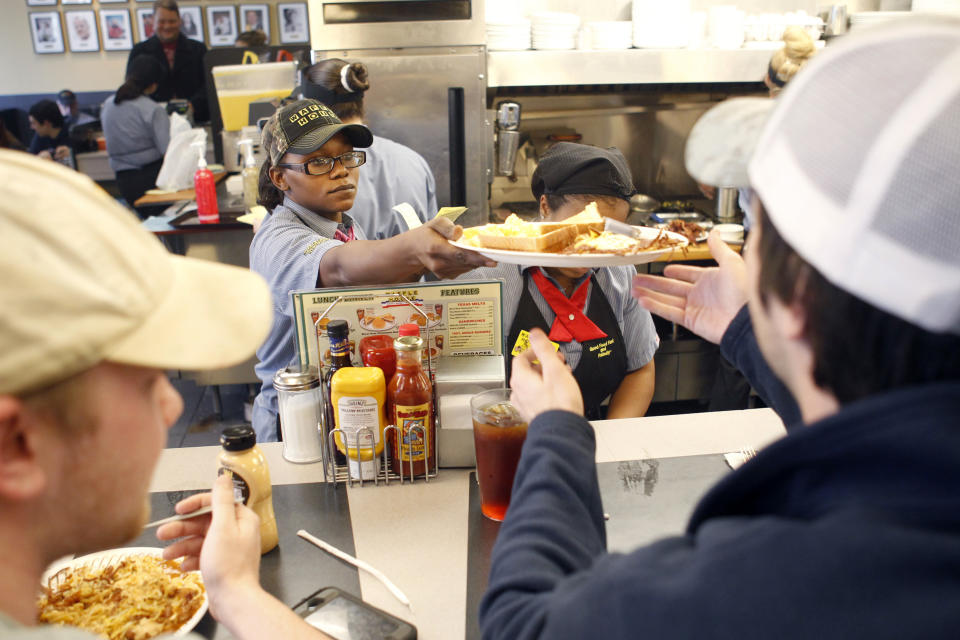Men and millennials least likely to tip, says new study
A new study from CreditCards.com found that men and millennials (those aged 23-38) are the least likely to tip for the services they use, like hair stylists, restaurant servers, and food delivery people.
The study surveyed over 2,500 adults and asked them to detail their tipping habits at coffee shops, with food delivery people, hair dressers and barbers, hotel housekeepers, restaurant serves, and taxi/rideshare drivers.
Baby boomers (aged 55-73) were more likely to tip than millennials — 61% vs. 45%, the study found. Women were also more likely to tip than men, 57% vs. 48%. Even though men and millennials do tip, their tipping habits are inconsistent.
Millennials are most likely to tip servers in a sit-down restaurant, followed by food delivery people. Unfortunately for hotel housekeepers, only 15% of millennials will always tip them, compared to a quarter of baby boomers, who are actually less likely to tip coffee shop baristas.

Though men and millennials are the most reluctant tippers, they can be the most generous. More men than women will tip over 20% while nearly a quarter of millennials are willing to tip more than 20% on the bill. That’s compared to only 5% of baby boomers.
More people rely on tips
Tipping is a contentious issue in the United States; the internet is rife with articles around the etiquette of tipping, and how much one should tip. While most people expect to tip waitstaff in restaurants, fewer people tip as a token of appreciation during the holiday season.
Teachers and childcare providers fare the best — just over half receive tips at the holidays, or on occasion. But 70% of all the CreditCards.com survey respondents say they never tip their trash collectors, and 60% of respondents say they don’t give gratuities to their mail carriers.
As the gig economy grows, so does the number of people who rely on tips. The federal minimum wage for tipped workers is only $2.13 an hour, so tips are a critical way that workers earn a living. The Raise the Wage Act, a Democrat-led bill working its way through the House aims to abolish the sub-minimum wage for tipped workers. Several Democratic presidential candidates support the initiative, including Senators Bernie Sanders and Elizabeth Warren.
It makes sense then that “empathy” can factor into tipping habits. According to the survey, just under 30% of Americans have held a job at one point or another where they received tips. “Consequently,” the report says, “they’re better tippers — leaving on average 22% at restaurants versus 17% among people who never received tips. Also, they’re significantly more likely to tip housekeepers, baristas, mail carriers, trash collectors, teachers and childcare providers.”
Kristin Myers is a reporter at Yahoo Finance. Follow her on Twitter.
Read more:
Follow Yahoo Finance on Twitter, Facebook, Instagram, Flipboard, LinkedIn, YouTube, and reddit.
Read the latest financial and business news from Yahoo Finance

